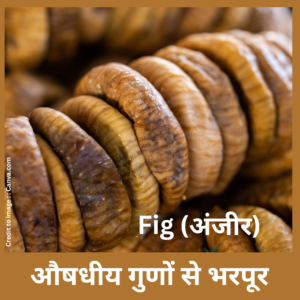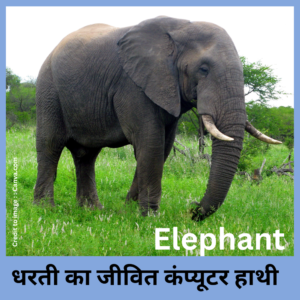The family Pycnonotidae, commonly known as Bulbuls, are small to medium-sized songbirds native to Africa and Asia. Known for their musical calls and adaptability, Bulbuls play a vital role in pollination, seed dispersal, and ecosystem health. This article explores scientific classification, ecological role, and relevance to climate change and biodiversity conservation role of Pycnonotidae or Bulbul Birds.
Introduction: Who Are the Pycnonotidae or Bulbul Birds?
The Pycnonotidae or Bulbul bird family consists of over 150 species known for their sweet calls, vibrant appearances, and immense ecological importance. From rural woodlands to bustling cities, these songbirds have adapted to varied habitats and contribute significantly to the health of ecosystems. “Pycnonotidae or Bulbul Birds”
Scientific Classification of Pycnonotidae or Bulbul
| Category | Classification |
| Kingdom | Animalia |
| Phylum | Chordata |
| Class | Aves |
| Order | Passeriformes |
| Family | Pycnonotidae |
| Common Name | Bulbul |
| Notable Species | Red-vented Bulbul (Pycnonotus cafer) |
| Global Distribution | Asia, Africa, Middle East |
| Conservation Status | Mostly Least Concern (IUCN), some threatened |
Ecological Role of Pycnonotidae or Bulbul
Bulbuls are essential seed dispersers and insect predators. Their interactions with native flora and fauna support ecosystem balance, especially in tropical forests and urban green spaces.
Ecological Contributions of Bulbul Birds
| Ecological Function | Description |
| Seed Dispersal | Aids plant regeneration and forest expansion |
| Insect Control | Helps in maintaining pest-free environments |
| Pollination Support | Assists in pollinating native flowering plants |
| Bioindicator Species | Reflects environmental health and climate stress |
Bulbul’s Role in Climate and Biodiversity
Bulbuls contribute to climate resilience by promoting forest growth and ecological restoration. As indicator species, they reflect environmental shifts caused by climate change.
Climate and Biodiversity Role Table
| Climate/Biodiversity Factor | Role of Bulbul |
| Climate Change Adaptation | Thrive in changing temperatures |
| Urban Biodiversity | Found in gardens and urban parks |
| Forest Health | Facilitate seed dispersal and regrowth |
| Biodiversity Indicators | Their absence or decline signals imbalance |
Famous Bulbul Species Around the World
| Common Name | Scientific Name | Region Found | Conservation Status |
| Red-whiskered Bulbul | Pycnonotus jocosus | Asia | Least Concern |
| White-spectacled Bulbul | Scientific Name : Pycnonotus xanthopygos | Middle East Region | Least Concern |
| Sooty-headed Bulbul | Pycnonotus aurigaster | Southeast Asia | Least Concern |
| Yellow-vented Bulbul | Pycnonotus goiavier | South Asia | Least Concern |
Why Protecting Pycnonotidae or Bulbul Matters?
Biodiversity: Bulbuls interact with over 100 native plant species.
Climate Buffer: Their role in forest health indirectly supports carbon sequestration.
Cultural Symbolism: In many Asian cultures, Bulbuls symbolize harmony and beauty.
Frequently Asked Questions (FAQs)
Q1: What is the most common Bulbul species found in India?
A: The Red-vented Bulbul (Pycnonotus cafer) is commonly found in India.
Q2: Are Bulbuls endangered?
A: Most species are not endangered, but some island-endemic bulbuls face habitat threats.
Q3: Can Bulbuls live in cities?
A: Yes, Bulbuls adapt well to urban environments and are commonly found in gardens and city parks.
Q4: What do Bulbuls eat?
A: They are omnivorous, feeding on fruits, insects, nectar, and even flower petals.
Q5: How do Bulbuls help in controlling pests?
A: By feeding on caterpillars, beetles, and other pests, they reduce insect populations naturally.
Summary
The Pycnonotidae or Bulbul family, despite their modest size, have a profound impact on nature. Their melodious presence hides a robust ecological utility—from biodiversity maintenance to climate resilience. Recognizing and conserving these feathered allies is essential for a sustainable future.
References
- BirdLife International – Species factsheets on Pycnonotidae
- IUCN Red List of Threatened Species – Pycnonotus species
- eBird by Cornell Lab of Ornithology – Bulbul Distribution Maps
- Handbook of the Birds of the World – Vol. 10: Cuckoo-shrikes to Thrushes
- https://www.birdguides.com/articles/focus-on-bulbuls/
- Ali, S. (2002). The Book of Indian Birds. Bombay Natural History Society.
PRAKRITI DARSHAN-NATURE AND ENVIRONMENT MAGAZINE
Prakriti Darshan is a leading Hindi-language magazine and digital platform dedicated to raising public awareness on vital issues related to nature, biodiversity, climate change, sustainable development, and environmental conservation. This magazine represents a unique blend of science, society, and sensitivity—offering a common platform for researchers, students, NGOs, policymakers, nature lovers, and conscious citizens alike.
With thought-provoking articles, inspiring stories, environmental research, impactful projects, and policy perspectives, Prakriti Darshan is a transformative journey toward a greener and more sustainable future.
Let us come together to protect and preserve our planet for generations to come. 🌿🌍
Join us in our mission to protect and celebrate the planet. 🌏💚
Click for more information
- Visit www.prakritidarshan.com for Free Magazine ,Free membership benefits ,offered price magazine @ Rs.1 or Rs.11 only and more ……
- 🎗️Sponsor Prakriti Darshan Magazine – Support our environment mission.
- 📚 Explore the Environment Magazine – Read our latest and past issues.
- ✍️ Read Editor’s Article or Blog – Insightful thoughts from our editorial desk.
- 🌱 Join Membership – Be part of India’s leading green community.
- 🤝 Become an NGO Impact Story Partner – Share your grassroots impact nationwide.
- 🏢 Become a Company Partner – Showcase your CSR, ESG, or sustainability work.
- 👤 Become an Individual Partner – Volunteer, write, and raise your green voice.
- 📢 Advertise with Us – Reach eco-conscious readers across India.
- Eco Trails Newsletter
- Donate for “Hari Ho Vashundhara & Har school Hariyali “ Plantation campaign Associated Partner NGO :GDSS NGO www.gdssngo.org
BALA DATT SHARMA,
MANAGING EDITOR ,
PRAKRITI DARSHAN-NATURE AND ENVIRONMENT MAGAZINE
- Yamuna River- Lifeline of North India :A Scientific, Agricultural, and Environmental Perspective - July 14, 2025
- Jurassic World Rebirth Breaks Box Office Records : Global Box Office Revenue $1.5 Billion (And rising) Globally with a Roaring Environmental Message - July 14, 2025
- African Elephant: Facts, Types, Scientific Data, and Why Their Survival Matters for Our Planet - July 13, 2025







